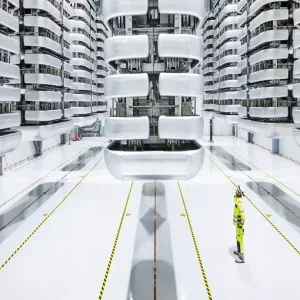Southeast Asia is showing signs of life. Industrial cogeneration orders are cropping up, some usually canny players remain confident that acquisitions of distressed assets today will be amply rewarded tomorrow, and the gloomiest predictions of total economic and social collapse are thankfully still just predictions, not headlines. Financial turmoil has found a distant home across the Pacific and over the Andes, in Brazil. China looks wobbly, but has yet to delight its detractors with a huge crisis of its own, which could drag Southeast Asia right back into disaster. Certainly the old days seem very far away – countless orders from 100 MWe upwards are only a fond memory – but the end, many hope, is no longer nigh.
This is good news for Asians, but it is bad for business. Some of what went on in Asia up to the crash should still be very high up on the corporate reform agenda, not consigned to folk memory as an epic era of innocent adventure, ended only by juvenile and over-powerful currency traders. Nowhere is this more true than in Indonesia. Looking back on the country’s 1990s electricity investments, one wonders just what the great global energy business thought it was up to.
Sure, the growth story was there. While electricity demand growth crumbled inside recession-gripped Europe and slackened within the US, Indonesia offered double-digit demand growth every year. From 1990 to 1997, power demand leapt 133 per cent to 64.7 TWh. Power generation capacity almost doubled from 9119 MWe in 1990 to 17 372 MWe in 1997, but this was arguably nowhere nearly enough. The country clearly needed capital and energy expertise to fuel a multinational direct investment frenzy, and tap its vast fuel reserves, which together seemed to place the economy on a phenomenal, never-ending growth path. How on earth could a properly structured project possibly go wrong under such circumstances?
Flawless corporate arguing, and also completely worthless. The price of entry was cooperation with one of the most unwholesome regimes anywhere in the capitalist world. And that cooperation turned out to be valued not on electricity fundamentals, but on a sliding scale of the regime’s power. When the scale went into action in 1997 and 1998, the price determined meant failure for some, delay for others, and absolute certainty for none.
|
“There is a word for this kind of business behaviour” |
In some cases, perhaps much worse was deserved. The Suharto clan and its followers are everywhere on the private projects lists. Sons, daughters, cousins, friends, generals, ministers, ministers’ relatives – all of these had sizeable equity stakes in Indonesian power projects. These projects were often funded by loans from foreign partners, giving the clan interests in some of the biggest power business in Southeast Asia without having to put a single dollar of its ‘own’ on the table. Some equipment, service and other supply contracts ended up in the same hands. Tenders, which were all the rage in Thailand at the time, were avoided. The prices that were contracted by the Indonesian state utility PLN to pay for three decades were on the high side by any competitive market measure, and Indonesia faced overcapacity in the medium term, but nothing stopped the private power party until the Asian crisis erupted. There is a word for this kind of business behaviour.
Watch it! Never mind the growth story, we were fully covered legally, the one-time friends of Suharto say. Our projects were as clean as was realistically possible to achieve in a messy world. We had received support from development banks, from export credit outfits, and even from hardened private banks, which will drop unacceptable risks with one click of a mouse. And look at the US dominance of the business – this was the fruit not of dirty bribes, but of the trade-hungry Clinton administration’s tireless and perfectly legitimate export promotion. There is no Old World moral or commercial complacency here, boy.
Well, hopefully the debate is one that will only get uglier. No one believes that, for example, the Chinese government is staffed by a bunch of nice ethics specialists. Or that BP will manage to get much out of Colombia without finding itself caught up, somehow, in that country’s appalling conflicts. Or that 100 per cent foreign-owned projects are necessarily desirable, let alone feasible. But handing hundreds of millions of dollars over to the cronies, and wheeling in millions more from home country taxpayers in order to support projects that are not in the host country’s interests, is not an unavoidable ‘real world’ issue. Forget the ethics, corruption is poor business practice, which should have no role in a prudent operation. Fight it, and your bottom line might be more impressive in the longer term, your record a bit more respectable, and the world a better place, both for glamorous business and for the man on the riot-torn Jakarta street.
there-is-a-word-for-this-kind-of-business-behaviour-td-tr-table-br-br
More Relevant |






